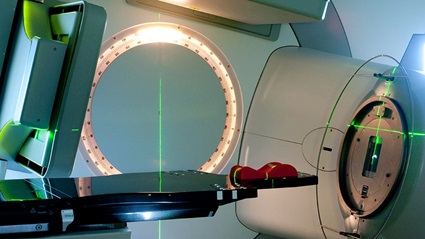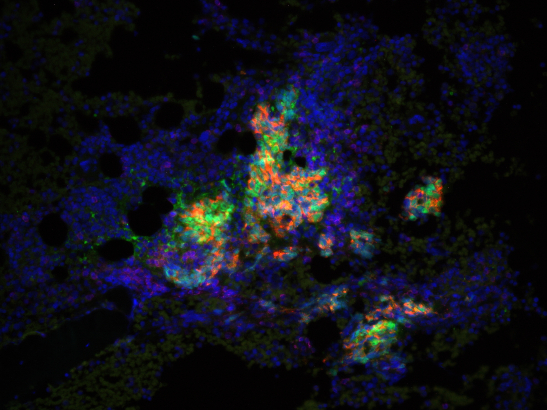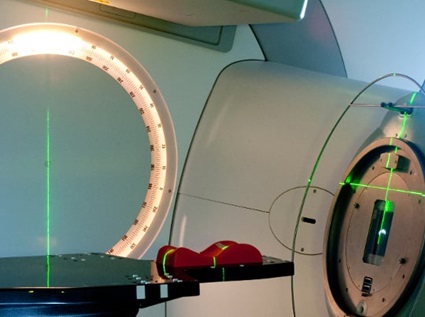Clinical Academic Radiotherapy Group (Huddart)
Professor Robert Huddart’s group investigates the role of targeted radiotherapy in urological cancers such as muscle invasive bladder cancer and testicular cancer.
Bladder Cancer
In bladder cancer, he was co-UK Chief investigator for the closed CRUK BC2001 trial that has demonstrated improved patient outcomes for concomitant chemotherapy with radiotherapy. Previously he was Chief investigator on the SPARE trial that introduced the concept of selective bladder preservation in the UK.
Currently he is leading protocols investigating the utility of image-guided (IGRT) and intensity-modulated radiotherapy (IMRT) for the treatment of muscle invasive bladder cancer and the role that functional imaging may play in its management.
Testicular Cancer
In testicular cancer, he provides clinical input into the ICR’s work to investigate the genetics of familial and sporadic testicular cancer. He has extensive interest in developing the treatment of testicular cancer and, via his former Chairmanship of the National Cancer Research Institute testis group, he has had a lead role in developing the UK testicular cancer trials program.
His role in this program includes being Chief investigator of the TE23 CBOP BEP randomised trial and co- investigator of the two national Phase III trials looking at the management of stage 1 seminoma testis (TRISST). He is also currently working to develop an internationally collaborative salvage treatment protocol (TIGER) for the treatment of relapsed metastatic germ cell tumours.
He has previously demonstrated the impact of treatment for testicular cancer on increasing cardiovascular risk and continue to investigate the issue of long term effects of testicular cancer treatment.
Our group investigates the use of the targeted radiotherapy such as utility of image-guided (IGRT) and intensity-modulated radiotherapy (IMRT) on muscle invasive bladder cancer and as well as other radiological methods on testicular cancer.
Professor Robert Huddart
Group Leader:
Clinical Academic Radiotherapy (Huddart).tmb-propic-md.jpg?Culture=en&sfvrsn=492e618f_9)
Professor Robert Huddart is investigating ways to improve radiotherapy treatment for bladder cancer and is investigating the genetic causes of testicular cancer. He has served as Chair of the National Cancer Research Institute and jointly leads the MSc in Oncology at the ICR.
Researchers in this group
 .
.
I am a Clinical Oncology registrar undertaking an MD focussing on improved biomarker-driven risk stratification and prediction of treatment response in Prostate Cancer. I use digital pathology analysis of diagnostic core biopsy H&E slides from large retrospective studies, along with techniques such as multiplex immunofluorescence and TCR sequencing to evaluate the Prostate Cancer tumour and immune landscape, and longitudinal response to radiotherapy.
Professor Robert Huddart's group have written 427 publications
Most recent new publication 6/2025
See all their publications .
.



